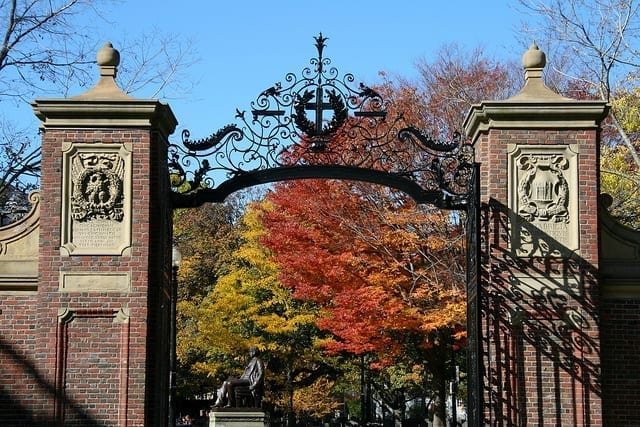A coalition of predominately Asian-American students claimed that Harvard’s affirmative action procedures illegally discriminated against certain races while privileging others.
A federal appeals panel has found that Harvard University’s affirmative action procedures were not discriminatory but rather a legitimate attempt to foster diversity within its student body.
According to NBC News, the ruling is a defeat for a coalition of Asian-American students who claimed that Harvard discriminated against them in the admissions process. The same coalition had received backing from the U.S. Department of Justice, with former Attorney General Jeff Sessions claiming that “Asian-Americans face a significant disadvantage in Harvard’s admissions program compared to applicants of other races.”
The lawsuit, notes NBC, was first filed in 2014. In its initial stages, suit sought extensive information on the extent to which Harvard utilizes race as an admissions metric.
The group which lodged the complaint—Students for Fair Admissions—alleged that Asian-Americans were disadvantaged in the admissions process, with Harvard more favorably weighing the applications of less academically qualified African-American and Latino candidates.
Even though Harvard is a private university, the school nonetheless receives millions of dollars in federal grants, thereby requiring that it comply with federal civil rights statutes.

The lawsuit was discarded by a lower court judge, with a two-judge panel from the 1st Circuit Court of Appeals upholding her decision on Thursday. In their ruling, the appeals judges said that Harvard considered race among other characteristics as “part of a holistic review process.” They also opined that the school’s use of affirmative action is “consistent with the requirements of Supreme Court precedent.”
That process, says NBC, was meant to encourage socio-economic and cultural diversity.
Harvard has since voided support for the ruling, saying the courts have again shown the university’s honest intent.
“Today’s decision once again finds that Harvard’s admissions policies are consistent with Supreme Court precedent, and lawfully and appropriately pursue Harvard’s efforts to create a diverse campus that promotes learning and encourages mutual respect and understanding in our community,” Harvard spokesperson Rachael Dane said in a statement. “As we have said time and time again, now is not the time to turn back the clock on diversity and opportunity.”
However, Students for Fair Admissions say that, no matter the two losses, their case has not yet reached its conclusion. The New York Times suggests that the group’s goal has always been to take their fight to the Supreme Court, where a conservative majority could override precedent.
Edward Blum, a conservative activist who is the plaintiff’s legal strategist, said he hopes the justices will agree to hear their complaint.
“It is our hope that although we lost in the lower court, ultimately the Supreme Court will take this case and end all considerations of race in college admissions,” Blum said.
Previous studies argue that organizational non-verbal communication elements (e.g., homepage, light, office layout, internal signs, internal correspondence, press releases; Dodd, 2008) can give clues about the formation of a holistic organization image that even individuals are not aware consciously of.
Sources
Appeals court rejects affirmative action lawsuit against Harvard
Harvard Victory Pushes Admissions Case Toward a More Conservative Supreme Court


Join the conversation!